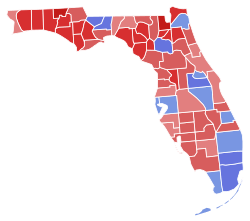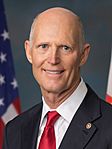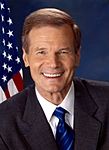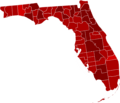2018 United States Senate election in Florida facts for kids
|
|||||||||||||||||
| Turnout | 61.68% | ||||||||||||||||
|---|---|---|---|---|---|---|---|---|---|---|---|---|---|---|---|---|---|
|
|||||||||||||||||

County results
Scott: 50–60% 60–70% 70–80% 80–90% Nelson: 50–60% 60–70% |
|||||||||||||||||
|
|||||||||||||||||
The 2018 United States Senate election in Florida was an important vote that happened on November 6, 2018. People in Florida chose who would represent them in the United States Senate in Washington, D.C.
This election was between two main candidates: Bill Nelson, who was already a Senator, and Rick Scott, who was the Governor of Florida at the time. It was a very close race, and the winner wasn't clear right away.
Contents
What is a U.S. Senator?
A United States Senator is an elected official who represents their state in the United States Congress. Each state has two Senators. They serve for six years. Senators help make laws for the whole country. They also vote on important issues.
The Candidates: Bill Nelson and Rick Scott
Bill Nelson was a member of the Democratic Party. He had been a Senator for Florida since 2001. He wanted to be re-elected for a fourth time.
Rick Scott was a member of the Republican Party. Before running for Senate, he was the Governor of Florida. He wanted to become Florida's new Senator.
A Very Close Race
The election between Bill Nelson and Rick Scott was one of the closest in the entire country that year. Millions of people voted. The difference in votes between the two candidates was tiny.
Because the results were so close, a special process called a recount was needed. This means all the votes were checked again very carefully. After the recount, on November 18, 2018, Rick Scott was officially declared the winner. He won by a very small number of votes.
How Elections Work: Primary and General
In the United States, elections often happen in two main parts:
- Primary Elections: These are held first. People from the same political party vote to choose who will be their party's main candidate. For example, in 2018, Rick Scott won the Republican primary election in Florida. Bill Nelson did not have a primary because no one else from his party ran against him.
- General Election: This is the main election. The winning candidates from each party's primary then run against each other. This is when all voters choose who they want to represent them. The 2018 Florida Senate election was the general election.
Images for kids
 | Laphonza Butler |
 | Daisy Bates |
 | Elizabeth Piper Ensley |




